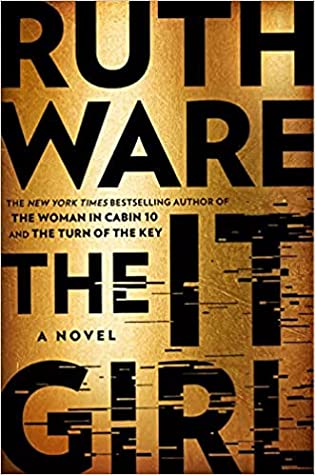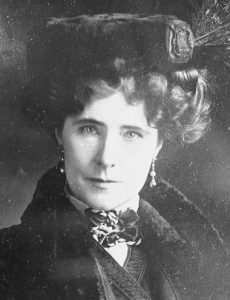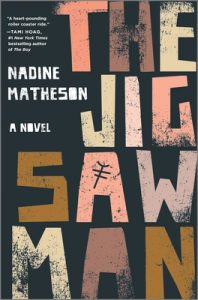 The It Girl by Ruth Ware
The It Girl by Ruth Ware Format: eARC
Source: supplied by publisher via Edelweiss
Formats available: hardcover, paperback, ebook, audiobook
Genres: mystery, suspense, thriller
Pages: 432
Published by Gallery/Scout Press on July 12, 2022
Purchasing Info: Author's Website, Publisher's Website, Amazon, Barnes & Noble, Kobo, Bookshop.org, Better World Books
Goodreads
The #1 New York Times bestselling author of One by One returns with an unputdownable mystery following a woman on the search for answers a decade after her friend’s murder.
April Clarke-Cliveden was the first person Hannah Jones met at Oxford.
Vivacious, bright, occasionally vicious, and the ultimate It girl, she quickly pulled Hannah into her dazzling orbit. Together, they developed a group of devoted and inseparable friends—Will, Hugh, Ryan, and Emily—during their first term. By the end of the second, April was dead.
Now, a decade later, Hannah and Will are expecting their first child, and the man convicted of killing April, former Oxford porter John Neville, has died in prison. Relieved to have finally put the past behind her, Hannah’s world is rocked when a young journalist comes knocking and presents new evidence that Neville may have been innocent. As Hannah reconnects with old friends and delves deeper into the mystery of April’s death, she realizes that the friends she thought she knew all have something to hide…including a murder.
My Review:

A couple of weeks ago I reviewed A Dress of Violet Taffeta by Tessa Arlen. That marvelous book is a fictionalized biography of the English couturier Lucy Duff-Gordon. It shouldn’t link to this book at all, but it does. Lucy’s sister, the novelist Elinor Glyn, created the concept of the “It Girl” embodied, at least on the surface, by April Clarke-Cliveden, whose murder lies at the center of this book I’m honestly struggling with here today.
It was a hit with my reading group, which is what made me pick it up. But just like last week’s Miss Eliza’s English Kitchen, in spite of that recommendation, it just didn’t work for me. As this book – like that one – has already been reviewed and summarized by oodles of readers, I’m just going to get into why I think it did not work for this reader in particular and let you be the judge of whether those reasons will apply to your reading or not.
Because this is a thriller, it starts in a place where the tension is supposed to already be ratcheted up. But, and again because it’s a thriller, the way in which that tension is created cuts it as well.
In the past, which we see in flashbacks, Hannah Jones was a student at a prestigious college at Oxford. Her suite-mate and “best” friend was the “It Girl” of the title, April Clarke-Cliveden. April was murdered, Hannah discovered her body, and its Hannah’s testimony that put the nails in the killer’s coffin during the police investigation and at his trial.
But it’s ten years later when the reader enters the story, and April’s killer has just died in prison, still insisting that he’s innocent of the crime. Whether he was or not, his death certainly brings all the vultures of the press out again, trying to ambush Hannah for a sound bite.
Including one reporter who is absolutely convinced that the police – and by extension Hannah – pinned the blame on the wrong man.
And that’s where the tension started draining out of the story for me. If the police had the right man in jail, there wouldn’t be a story. Therefore, they must have had the wrong man, meaning Hannah made a terrible mistake that is about to unravel.
Leaving me certain that sooner or later it would all be revealed and just waiting for the story to get on with it.
It didn’t help that Hannah is not and was not a strong enough personality to carry this story that she is irrevocably pinned to like a moth displayed on a card. Because Hannah was the pale moth, while April was the butterfly.
And both are shallow but at least April is vivid where Hannah is anything but.
The story twists backwards and forwards in time, so we get to witness the barely post-adolescent posturing of April, her hangers on and Hannah, leading up to that fateful moment when April is killed and Hannah is left to pick up the pieces of her shattered world.
And to pick up the not-so-shattered pieces of April’s ex-boyfriend, who Hannah later marries. When this story opens, Hannah and her husband Will should be celebrating that they have a baby on the way, but Hannah gets herself involved in re-opening the case of the man she helped convict of April’s murder, leaving her angsting over the past and her terrible mistake.
I didn’t find myself captured by any of the characters. Hannah seems to still be stuck in passivity. April may have been the victim of the murder, but she had so many victims herself along her way that it ends up not being all that much of question why she was murdered, only a question of which of her victims finally got up the courage to do the deed if it wasn’t the man who was convicted for it.
Something I found extremely problematic along that way was just how that wrong person got convicted and the way that false conviction is treated by Hannah once she realizes the truth – or at least her first version of that truth.
John Neville, however wrongful his conviction for April’s murder, was not innocent. He was the one of the porters at Hannah’s and April’s college and did use his position and his access to the grounds to stalk and harass many of the female students, including both Hannah and April. He wasn’t just awkward and a poor communicator. He set out to harass young women and he did so with impunity, as he was adept at making them feel creeped on – because they were – while never quite doing anything that was unequivocally obvious. He used the way that girls are socialized to be polite and not cause trouble to his advantage. He was not harmless in the least – he just wasn’t a murderer.
The defense that “he’s just awkward” has often been used in geek spaces to defend men who may be awkward but are trading on that awkwardness to ignore boundaries and refuse to take “no” for an answer with the claim that the “no” wasn’t clear or emphatic enough. It seemed cheap to use that as a way to defend a sexual predator who may not have been a killer but was never innocent, diminishing something that is a very real problem.
Everything about the conviction does make the reader wonder what the police were doing as all this was going on. It was not April’s responsibility to conduct the entire investigation and it’s not her fault if the police weren’t thorough enough doing their jobs.
(Once upon a time, Oxford’s Thames Valley Police Department was the province of the brilliant Detective Chief Inspector Endeavor Morse in the series of mysteries by Colin Dexter. Morse would be ashamed of their handling of this case.)
Many readers found the twists and turns in this case compelling. I didn’t like Hannah enough to get caught up in her angst – and I didn’t care for April nearly enough to be that invested in discovering who killed her. The police don’t seem to have done their jobs in the beginning, and the reporter who re-opens the case doesn’t seem to have ever learned the difference between assumptions and red herrings. It’s not that he was wrong in the end, it’s that the reasons for his compulsions in that regard don’t hold up to any examination. Then again, even a stopped clock is right twice a day – I’m just not all that interested in watching it.
 Especially as the way that the story opens begged the central question. If the right man was convicted, there would be no story. Since there’s a story, they got it wrong. (It is possible to get around this conundrum – The Jigsaw Man by Nadine Matheson does extremely well – but it was obvious early on that just wasn’t the case here.) That Hannah takes the blame for that wrong all onto herself – and then proceeds to keep getting it even more wrong – just did not a compelling mystery make.
Especially as the way that the story opens begged the central question. If the right man was convicted, there would be no story. Since there’s a story, they got it wrong. (It is possible to get around this conundrum – The Jigsaw Man by Nadine Matheson does extremely well – but it was obvious early on that just wasn’t the case here.) That Hannah takes the blame for that wrong all onto herself – and then proceeds to keep getting it even more wrong – just did not a compelling mystery make.
At least not for me. Your reading mileage may vary, as it certainly has for others. Escape Rating D



















One thought on “Review: The It Girl by Ruth Ware”
Comments are closed.